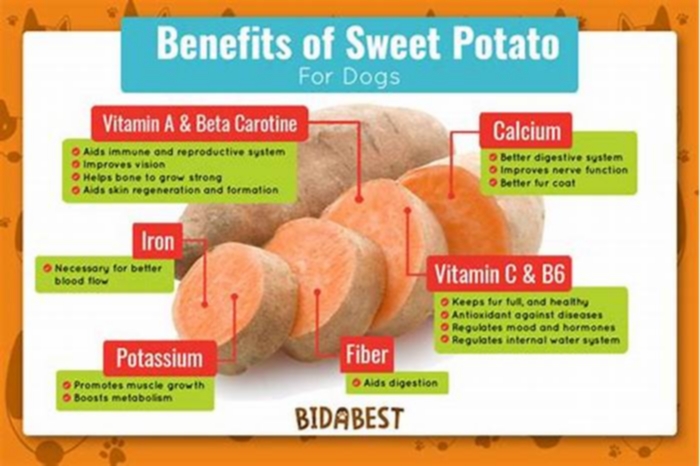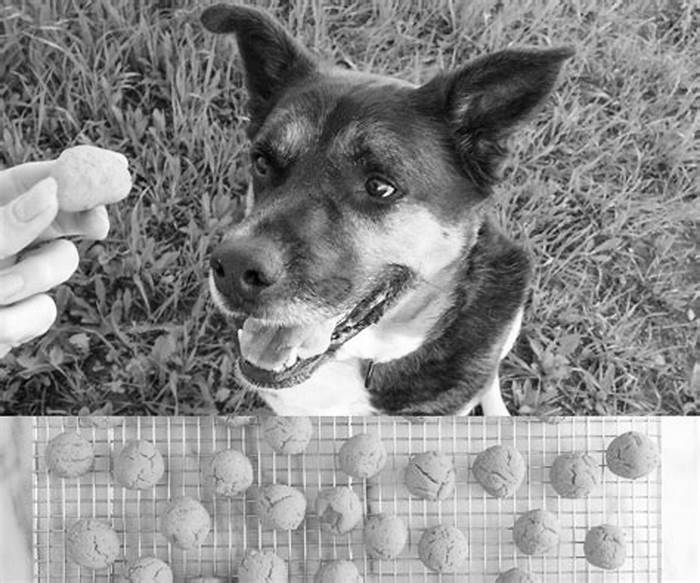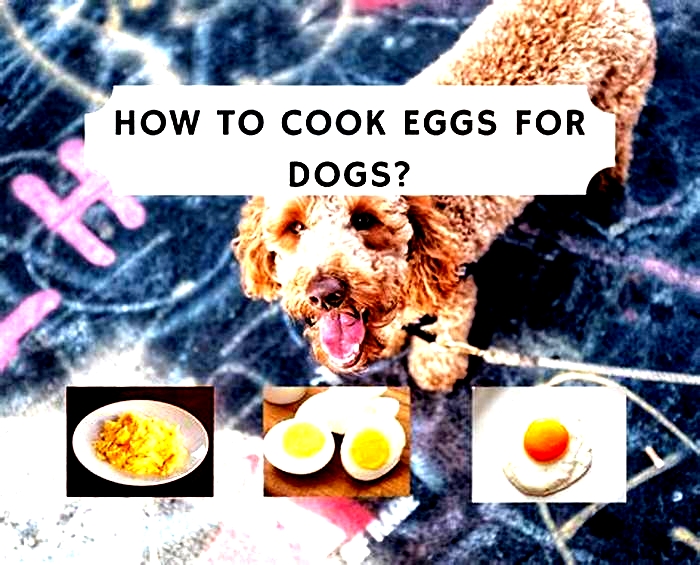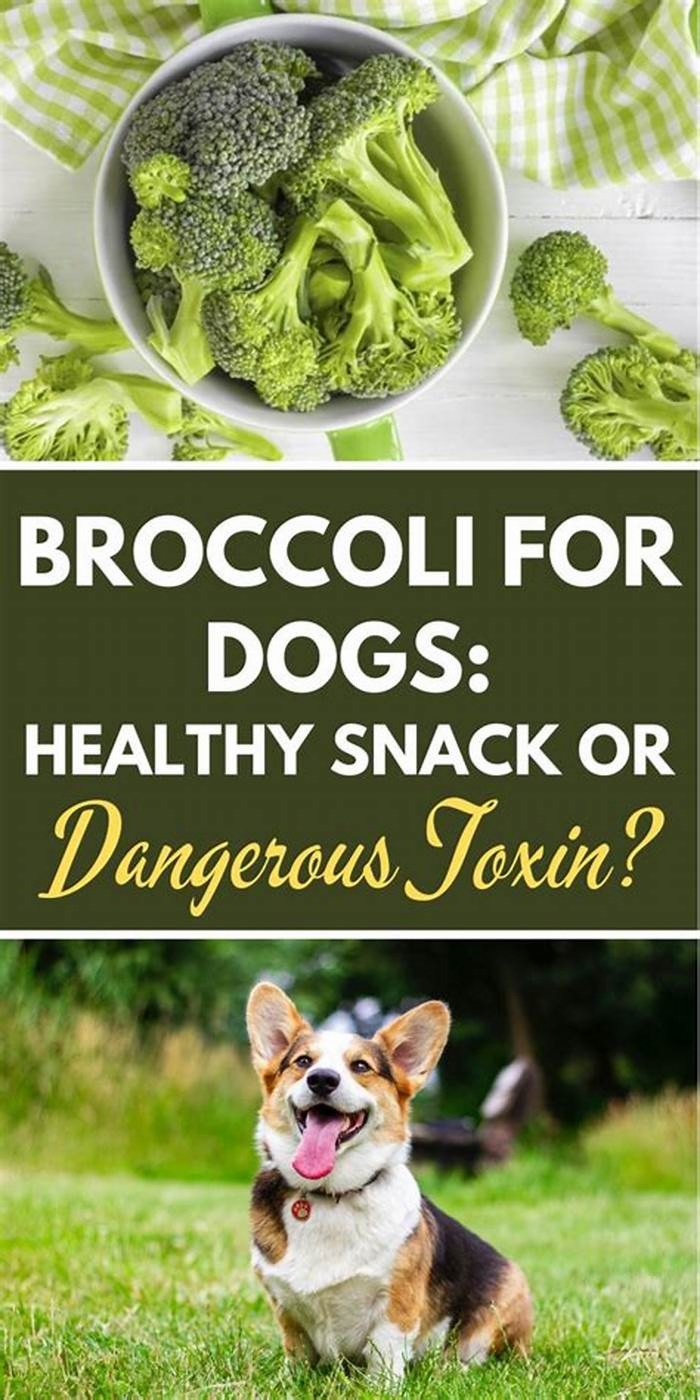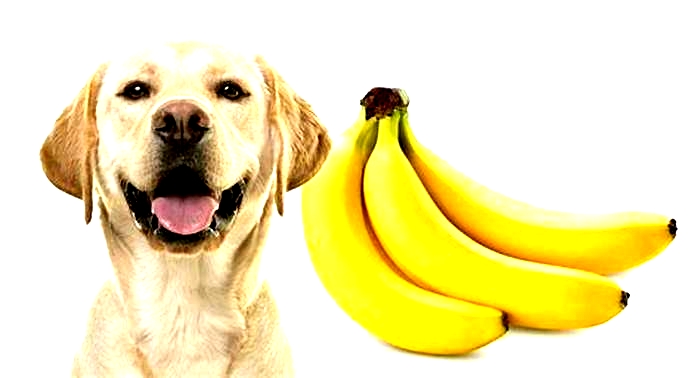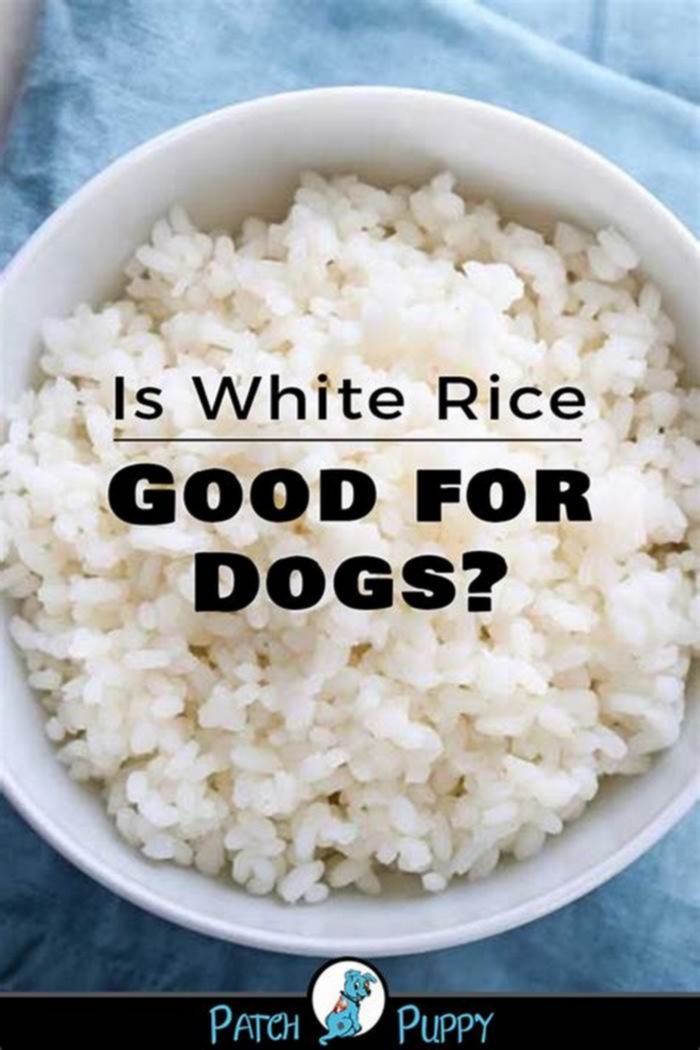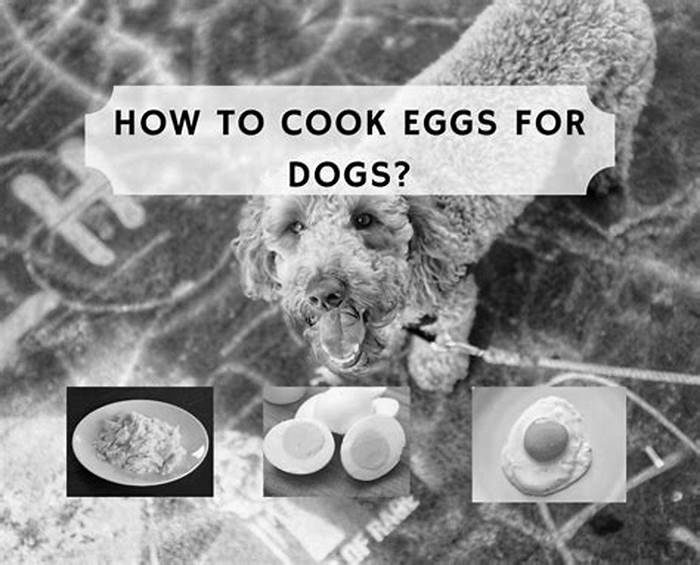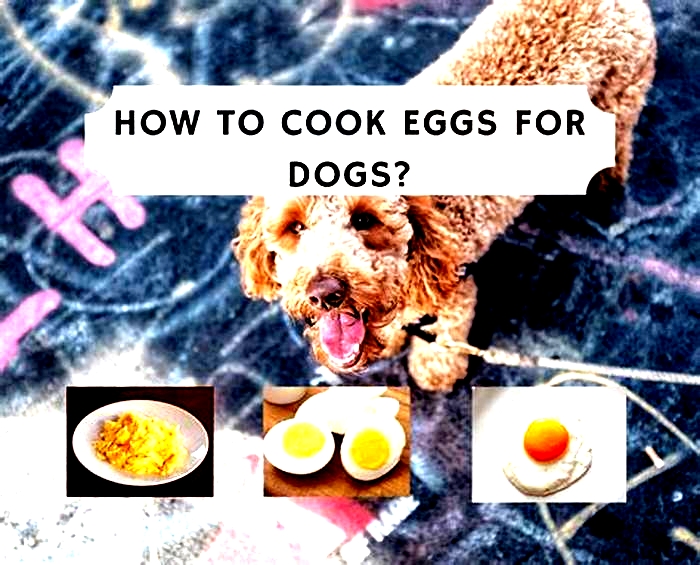Is sweet potato good for dogs
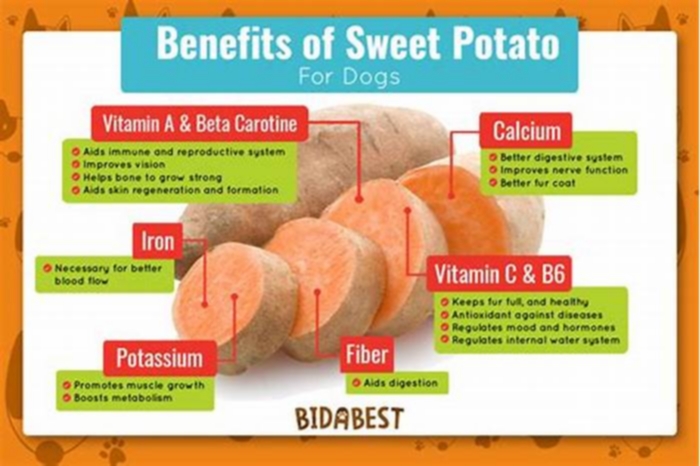
Can Dogs Eat Sweet Potatoes?
NOTE: Always check with your veterinarian first before giving your dog any new foods, especially people foods. What might be OK for one dog might not be good for your dog, depending on multiple factors, such as their age, health history, health conditions, and diet. Dogs on prescription diets should not be fed any food or treats outside the diet.
Sweet potatoes are a nutrient-packed staple for us humans. But what about our canine companions? If your dog is giving puppy dog eyes for your favorite Thanksgiving side, you may wonder if dogs can eat sweet potatoes.
Good news: vets give the OK when it comes to dogs and sweet potatoes! In fact, sweet potatoes are considered a healthy treat for dogs and offer lots of nutritional value for your pooch.
Just be careful how you go about introducing this fiber-rich starchy root to your pooch. Even though dogs can eat sweet potatoes, dont just toss them any old yam to gnaw on! Keep the following tips top of mind in order to safely feed your dog sweet potato.
Are Sweet Potatoes Good for Dogs?
Sweet potatoes can be a nutritional treat for our canine companions when fed in small amounts. This vitamin-rich carbohydrate is even becoming a common ingredient in commercial dog food and treats. As long as you watch out for extra ingredients that can sneak into human recipes (like butter, sugar, and molasses) and dont offer too much, these starchy root veggies are considered a safe dog treat.
Here are a few reasons sweet potatoes are considered a healthy snack for dogs:
High in fiber: Sweet potatoes are a good source of dietary fiber, which helps dogs with digestion. These special spuds are also considered a complex carbohydrate, meaning they provide a steady source of energy.
Good source of beta-carotene: Like other orange veggies (such as carrots), sweet potatoes contain high amounts of beta-carotene, which the body turns into vitamin A. Vitamin A helps dogs eye health, immune function, and cell growth.
Vitamins and minerals: Sweet potatoes are also a good source of other vitamins and minerals, including vitamin C, manganese, potassium, and iron.
Low glycemic index: As a source of carbohydrates, sweet potatoes have a relatively low glycemic index, which means theyre less likely to cause a spike in your dogs blood sugar. This can be beneficial for dogs with diabetes.
Antioxidants: Sweet potatoes contain antioxidants that may help protect cells from damage caused by free radicals.
Can Dogs Eat Cooked Sweet Potatoes?
Cooked sweet potatoes are fine for your dog to enjoy as an occasional treat. Just be sure to avoid other ingredients that us humans like to add to our sweet potatoes, such as butter, cream, or salt, which can be dangerous for dogs to eat (and even cause pancreatitis in dogs).
Sweet potatoes that have been prepared with salt, sugar, garlic, or other seasonings that are not safe for dogs to consume should also be avoided. As with any new food that finds its way into your dogs bowl, moderation is key.
Can Dogs Eat Raw Sweet Potatoes?
While cooked, unseasoned sweet potatoes are fine in moderation, dont feed your pooch raw sweet potatoes. Uncooked sweet potatoes are difficult for them to chew and can be a choking hazard. They can also cause an upset stomach.
Can Dogs Eat Sweet Potato Skins?
Potato skins are not considered safe for dogs to eat because their chewy exterior can cause dogs to choke and even lead to intestinal blockages. Be sure that any sweet potato offered to Fido is cooked and that the skins (along with any stems or leaves) are removed before they find their way into your pets food bowl.
How to Safely Feed Sweet Potatoes to Your Dog
Whether theyre mashed, baked, or boiled, sweet potatoes are fine for dogs to eat as long as theyre cooked, peeled, and plain. Again, avoid any seasonings or extra ingredients that may be included in human food recipes, such as butter, sugar, or salt.
For a little extra flavor (and fiber), try topping your dogs regular food with a little sweet potato pure at mealtime. Or add a spoonful to their Kong or other food puzzle to keep their brains busy as they snack. Sweet potato is easy to mix in with other dog-friendly ingredients, and most dogs enjoy the taste.
Just be sure not to overdo it! Treats (including veggies like sweet potatoes) should only make up 10% of your dogs overall calories. The other 90% should be from a diet of well-balanced dog food.
How Much Sweet Potato Can a Dog Eat?
When feeding your dog cooked, plain sweet potato, start slowthe high fiber content in sweet potatoes may cause gastrointestinal upset. See how your pup reacts to a small amount before giving them a full serving size.
Here are some general guidelines for how much sweet potato is safe for dogs to eat in a day, based on their weight:
Extra-small dog (220 pounds): 1 teaspoon
Small dog (2130 pounds):12 teaspoons
Medium dogs (3150 pounds): 23 teaspoons
Large dogs (5190 pounds): 12 tablespoons
Extra-large dogs (over 90 pounds): 34 tablespoons
Note that these are just general guidelines. Its always best to check with your veterinarian before making major changes to your dogs diet.
What Other Vegetables Can Your Dog Eat?
Some other veggies that are considered safe for dogs include:
Featured Image: iStock/SolStock
Can Dogs Eat Potatoes?
The humble potato is the key ingredient in French fries, hash browns, tater tots, and many other essential comfort foods. When prepared in a healthy way, white potatoes can be a nutritious food for humans, but can dogs eat potatoes?
The answer is: it depends. Potatoes arent categorically toxic to dogs, like grapes or onions. Potatoes contain vitamin C, vitamin B6, iron, magnesium, and many other vitamins and nutrients that dogs need. But if you dont prepare potatoes properly, or you feed your dog too many, there could be adverse health effects.
Can Dogs Eat Raw Potatoes?
You should never feed your dog a raw potato. White potatoes belong to the nightshade family of vegetables, which includes tomatoes. Like tomatoes, raw potatoes contain solanine, a compound that is toxic to some dogs. However, cooking a potato reduces the levels of solanine.
If you do feed your dog a potato, youll want to bake or boil the potato with no added ingredients (like salt or butter). Potatoes fried in oil, such as French fries or potato chips, or potatoes loaded up with butter or salt, are not healthy for dogs. (One potato chip isnt going to harm your dog, but a whole bag of them is not a healthy choice for your pet.) If your dog has diabetes, its better to avoid feeding them potatoes entirely due how they can cause blood sugar to spike.
A dogs body is designed to get most of its nutrients from animal protein, so if you decide to feed your dog baked or boiled potatoes, you should use them like a treat, make them an occasional addition to meals for variety, and always keep portions small. Giving a dog too many carbohydrates can result in obesity or other health problems.
Can Dogs Eat Sweet Potatoes?
Sweet potatoes are a healthier option than white potatoes because they are much more nutritious than white potatoes. Sweet potatoes contain vitamin A, vitamin C, vitamin B6, calcium, potassium, magnesium, and iron, among other nutrients.
Every dog is different, so start with just a small amount of potato to make sure your dog has no problem digesting it. You should always consult your veterinarian before introducing a new food into your dogs diet.
0 Comments
About sweet potatoes
Originally native to tropical regions of the Americas and dating back some 5,000 years, sweet potatoes are only distantly related to potatoes despite their shared name. They are in fact rather surprisingly related to bindweed and morning glory. Neither of which seems to visually share any resemblance whatsoever with the tuberous root vegetable we and our dogs know and love so much. So what about sweet potatoes for dogs?
Nutrients in sweet potatoes
Sweet potatoes are an excellent source of vitamin A and a good source of vitamin C and vitamin B6. Theyre also a good source of calcium, copper, iron, magnesium, manganese and potassium.
Benefits of sweet potatoes for dogs
High in fibre and low in fat, sweet potatoes help support a healthy immune system. Due to their high dietary fibre content, they also support a healthy digestive system in both humans and dogs.
Sweet potatoes are said to protect against heart disease and to have anti-aging properties which help fight against cancer.
Gluten and of course grain-free, sweet potatoes are a useful source of necessary carbohydrates for dogs. As a canine nutritionist I can tell you that mine simply adore them!
Kirkland Signature (Costco) Nature's Domain Salmon & Sweet Potato Formula For Dogs Review
While the first few ingredients typically dominate the recipe's composition, ingredients in small quantities can still have a meaningful impact on the overall nutritional profile of the recipe.
Salmon is an excellent source of high-quality protein, omega-3 fatty acids, and essential vitamins and minerals that support your dog's immune system, brain function, and skin and coat health.
Salmon meal is a high-quality protein source that also provides omega-3 fatty acids, which support skin and coat health, as well as overall wellness.
Sweet potato is a highly nutritious and easily digestible source of complex carbohydrates for your dog. It provides essential vitamins, minerals, and dietary fiber, promoting a healthy digestive system and immune function.
Potatoes are a good source of vitamins and minerals for dogs, and are also high in fiber which can help keep your dog's digestive system running smoothly.
Peas are a good source of vitamins, minerals, and dietary fiber. They can contribute to your dog's overall health and provide necessary nutrients.
Fish meal is a highly digestible protein source for dogs, providing essential amino acids, omega-3 fatty acids, and other nutrients. It supports skin and coat health, cognitive function, and overall well-being.
Canola oil (preserved with mixed tocopherols) is a source of healthy fats that can help maintain a shiny coat and healthy skin. It's preserved with mixed tocopherols (forms of vitamin E) to maintain freshness.
Pea flour is a gluten-free source of carbohydrates and protein that offers an alternative to grains for dogs with sensitivities. It is also rich in dietary fiber, which supports digestive health and helps maintain a healthy weight.
Flaxseed is an excellent source of omega-3 fatty acids, dietary fiber, and essential nutrients, which can support your dog's skin, coat, and digestive health.
Dried Beet Pulp is a source of dietary fiber, which aids in digestive health and provides energy for dogs.
Natural flavor is added to dog food to enhance its taste and make it more appealing to your pet. This can help encourage your dog to eat a balanced and nutritious diet, supporting their overall health and well-being.
Salmon oil is a rich source of Omega-3 fatty acids, which support your dog's skin and coat health, immune system, and cognitive function.
While salt is a necessary component of a dog's diet, providing essential minerals such as sodium and chloride for proper cellular function, it should be provided in moderation to avoid health issues like hypertension or kidney damage.
Potassium chloride is an essential mineral supplement that helps maintain your dog's electrolyte balance and supports healthy nerve and muscle function.
DL-Methionine is an essential amino acid that supports your dog's overall health by promoting proper protein synthesis, maintaining healthy skin and coat, and aiding in the detoxification process.
Dicalcium phosphate is a calcium and phosphorus supplement that helps to support the development and maintenance of strong bones and teeth in dogs.
Choline Chloride is an essential nutrient that aids in brain and liver function, muscle movement, and supports healthy metabolic processes.
Taurine is an essential amino acid that supports heart health, vision, and development and function of skeletal muscle.
Blueberry is a nutrient-rich fruit that provides antioxidants, vitamins, and fiber, which can help support your dog's immune system and overall health.
Raspberry is a natural source of antioxidants, vitamins, and minerals, which help to support a strong immune system and overall health in dogs.
Tomato is a nutrient-rich fruit that provides your dog with essential vitamins and minerals, including vitamin C, potassium, and antioxidants. These nutrients support a strong immune system, promote heart health, and contribute to overall well-being.
Dried chicory root is a natural prebiotic fiber that can help promote the growth of beneficial gut bacteria and support your dog's digestive health. It also contains inulin, which can help maintain healthy blood sugar levels and support overall immune system function.
Yucca schidigera extract is a natural ingredient known for its ability to reduce unpleasant odors in your dog's waste. It also has anti-inflammatory properties, which can help support joint health and overall well-being.
The dried Lactobacillus plantarum fermentation product is a probiotic that aids in maintaining a healthy gut flora.
The dried bacillus subtilis fermentation product is a beneficial probiotic that supports digestive health in dogs. It helps maintain a healthy balance of gut bacteria, promoting overall well-being and immune function.
Dried lactobacillus acidophilus fermentation product is a probiotic that can aid in maintaining a healthy balance of bacteria in your dog's gut, supporting overall digestive health.
Dried Enterococcus faecium fermentation product is a beneficial probiotic ingredient used in dog food. It helps support a healthy digestive system by promoting the growth of beneficial bacteria in the gut. This probiotic also aids in nutrient absorption and can improve your dog's overall immune system function.
Dried Bifidobacterium animalis fermentation product is a probiotic that aids in maintaining a healthy balance of bacteria in your dog's gut, promoting digestive health.
Vitamin E supplement is an essential nutrient that helps support your dog's immune system, skin health, and overall wellness.
Iron proteinate is a chelated form of iron that is more easily absorbed by your dog's body, supporting their red blood cell production and overall health.
Zinc proteinate is a highly absorbable form of zinc. It helps support a healthy immune system, skin, and coat in dogs.
Copper Proteinate is a chelated form of copper that's easier for dogs to absorb, aiding in red blood cell formation and iron absorption.
Ferrous sulfate is an important source of iron for dogs, a mineral essential for red blood cell production, oxygen transportation, and overall vitality. Adequate iron intake supports your dog's immune system and energy levels.
Zinc sulfate is a source of the essential mineral zinc, which supports your dog's immune system, skin and coat health, and overall growth and development.
Manganese sulfate is a source of manganese, an essential trace mineral that plays a crucial role in maintaining healthy bones, joints, and metabolism in dogs. It also supports the production of collagen, which is vital for healthy skin, coat, and connective tissues.
Copper sulfate is an essential trace mineral that supports various bodily functions in dogs, including immune system health, skin and coat maintenance, and red blood cell production.
Potassium iodide is a chemical compound that can be used as a source of iodine in your dog's diet. Iodine is crucial for the proper functioning of your dog's thyroid gland.
Thiamine mononitrate is a form of vitamin B1 that helps support your dog's nervous system function, energy metabolism, and overall health.
Manganese Proteinate is a chelated form of manganese, a mineral that supports bone health, metabolism and enzymatic reactions.
Ascorbic acid, or vitamin C, is an essential antioxidant that supports your dog's immune system and helps reduce inflammation.
Vitamin A Supplement is important for supporting vision, immune function, and skin health in dogs.
Biotin is a B-vitamin that's important for maintaining healthy skin, coat, and nails in dogs.
Niacin, also known as Vitamin B3, is essential for a dog's metabolism and energy production, and supports healthy skin and coat.
Calcium pantothenate is a source of pantothenic acid (vitamin B5) that helps support your dog's energy metabolism and nervous system function.
Sodium selenite is a form of selenium, a necessary trace mineral that supports immune function and thyroid health in dogs.
Pyridoxine hydrochloride is a source of vitamin B6, which is essential for your dog's nervous system function, immune health, and red blood cell production.
Vitamin B12 Supplement is an essential vitamin that helps support brain function and the formation of red blood cells.
Riboflavin, also known as Vitamin B2, is essential for energy production, cell function, and fat metabolism in your dog's body.
Vitamin D3 supplement is an essential vitamin that supports bone health, immune function, and overall well-being in dogs. It helps regulate calcium and phosphorus balance in the body, promoting strong and healthy bones.
Folic acid is a crucial B-vitamin that aids in the synthesis of DNA and supports healthy cell growth. It's essential for maintaining your dog's overall health, particularly during periods of rapid growth.
Crude Protein (min) of 24.00%: The primary contributor to the crude protein content in this dog food is the salmon meal, which is a concentrated form of protein derived from salmon. Other ingredients such as ocean fish meal, pea protein, and even the peas themselves also contribute to the overall protein content. Protein is essential for the growth, repair, and maintenance of a dog's body tissues.
Crude Fat (min) of 14.00%: The crude fat content is primarily derived from the canola oil and the fish meals (salmon meal and ocean fish meal) present in the food. Fat is a critical source of energy for dogs and also supports healthy skin and coat. Additionally, flaxseed may contribute some fat in the form of omega-3 and omega-6 fatty acids, which are beneficial for health.
Crude Fiber (max) of 3.00%: The fiber in this dog food comes from ingredients such as sweet potatoes, peas, potatoes, and potato fiber. Fiber is important for digestive health and can help to regulate bowel movements. The dried chicory root may also contribute a small amount of inulin, a type of soluble fiber that can support the growth of beneficial bacteria in the gut.
Calories of 3590.00 per kg: The caloric content is a measure of the energy provided by the food. The calories in this dog food come from a combination of the macronutrients: proteins, fats, and carbohydrates. The salmon meal and canola oil are calorie-dense ingredients, contributing significantly to the total caloric content. Carbohydrates from sweet potatoes, peas, and potatoes also add to the calorie count.

